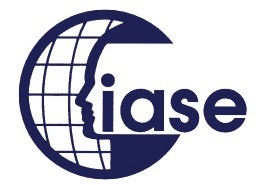Benefits of Music Therapy in Motor Skill Development in Autistic Children
23rd January 2018

The number of parents and teachers realise the remarkable connection between music and autism, the more autistic children can benefit from it and improve their motor skills. There is a notable connection between music and autism. Proper research has shown that when children with autism are exposed to/ interact with music on a regular basis, it improves their communication and behaviour along with developing their motor skills.
So let us discuss a bit about what actually is Autism.
Autism is actually a neurological and developmental disorder that normally appears during the first three years of a person’s life. Children affected by Autism present with a range of challenges in three main areas such as social interaction, communication and presence of restricted and repetitive behaviours.
Sometimes, children and adults with autism can have a strong urge to communicate but their lack of expression or communicative abilities prevent them from doing so. Their communication process includes sounds and gestures that replace words; this renders them misunderstood by others.
The surprising connection between music and Autism
There are several references to autistic children’s ability and interest in music. Studies and researchers that have been conducted over a longer period of time have shown that there is a strong tie between autism and music. Although autistic individuals are slower in developing verbal communication skills evidence show that they are quite able to understand and process music on a similar level, if not better, with their peers. With the proper exposure, they have exhibited advanced abilities in categorizing pitches, memorising melodies, along with labelling various emotions in music.
Let us look into The Benefits of Music for Autism.
Communication
It weighs heavily on any parent or caregiver to communicate with their autistic child but including music into the child’s schedule will bring a ray of hope. Involvement of music has been found to benefit and improve speech output and develop motor skills among autistic individuals in the areas of vocalisation, verbalisation and vocabulary. Singing can be highly beneficial for teaching such children so that they can express their emotions in a proper way.
Cognition
Teachers teaching autistic learners often take the benefits of music for improving cognitive development. Music’s rhythmical pattern provides a structured way for children with autism to organise auditory information. Due to this, music makes for a very beneficial and useful tool for memorising and learning schedules. Repetition in training and music can also help improve a child’s span of attention.
Social Skills
A study regarding music and autism has shown that during play sessions with music, autistic children showed more social involvement with their peers compared to those without music. Incorporation of musical sessions encourages autistic children to interact in a more proper way including sharing and taking turns.
Emotions
Children with autism are more likely to go through anxiety than the average child and introducing music their schedule will benefit in increasing their tolerance for frustration and decrease anxious behaviours. The repetition and predictability in the rhythms of music are quite beneficial in relieving anxiety.
Apart from these, autism awareness for teachers as well as parents is necessary in order to delve deeper into the matter and help affected children lead a better life. Enrol in any of the Autism training courses that may prove beneficial for you whether you are a parent or a caregiver.








